Secure your freelancing journey with free, ready-to-use Independent Contractor Agreement templates—download now and protect your work with confidence.
Step into freelancing with our Independent Contractor Templates – your go-to tools for smooth teamwork and clear communication. These templates help you outline tasks, set deadlines, and define terms so you and your clients are always on the same page. Whether you’re just starting or a seasoned freelancer, they bring professionalism and support successful partnerships.
No more confusion – just clarity! Dive into our treasure trove of Free Independent Contractor Agreement Templates for Freelancers formatted in Microsoft Word Format with sample data. Created with care, these templates save you time and strengthen your collaborations. Skip the headache of starting from scratch – grab your free templates now and set sail on a journey of smoother, more polished freelance projects. It’s freelancing made easy, just a click away!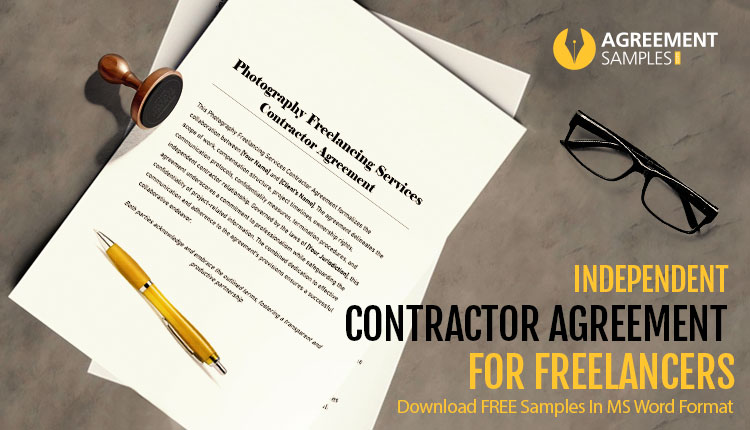
Simply put, an Independent Contractor Agreement is a written contract that specifies the conditions of a business-freelancer or self-employed professional’s working relationship. The contractor works independently and is responsible for their own taxes, expenses, and benefits rather than being treated like an employee.
Key details such as what work will be done, how and when payment will be made, deadlines, and what happens if either party wishes to terminate the contract are typically outlined in this agreement. In order to safeguard sensitive data, it frequently incorporates confidentiality regulations. Writing everything down makes the relationship easier, more equitable, and more professional because both the client and the contractor know exactly what to expect.



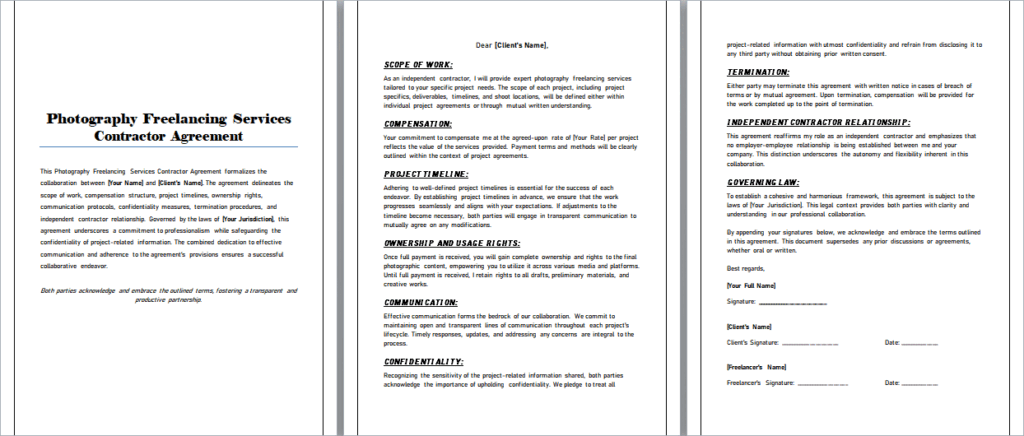
An Independent Contractor Agreement usually includes a few essential clauses that protect both the freelancer and the client:
Including these clauses sets the foundation for a professional, transparent, and legally sound relationship, making sure everyone knows their rights and responsibilities.
With this, we’re ready to rock the social media game and make your online presence shine.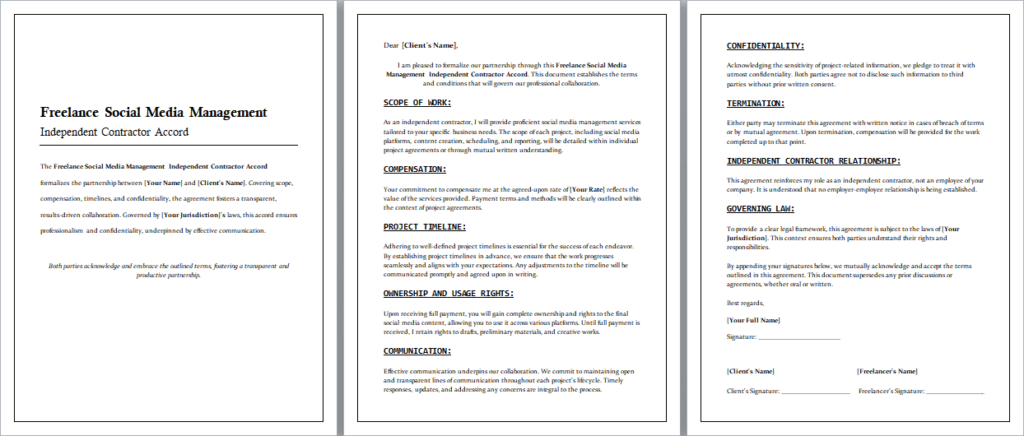
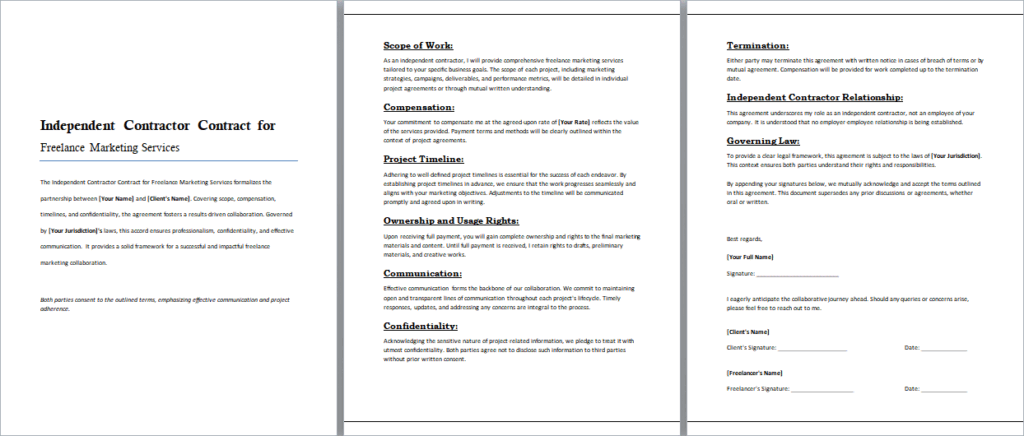
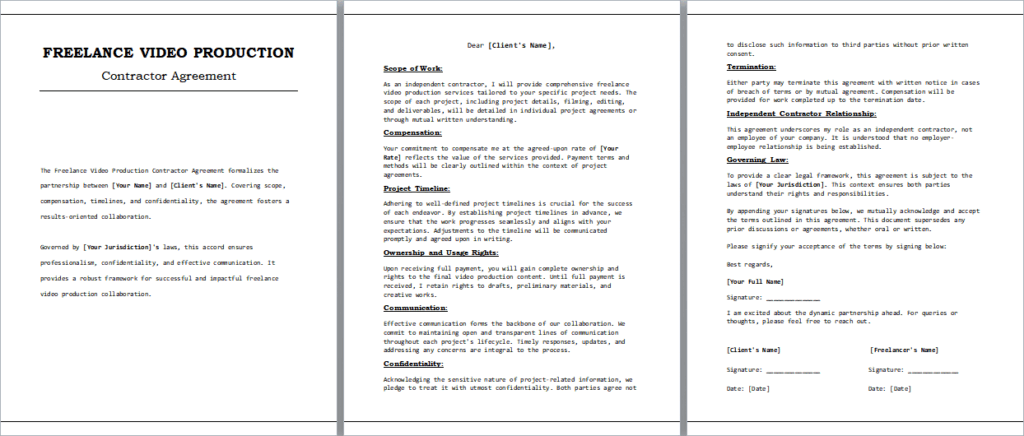
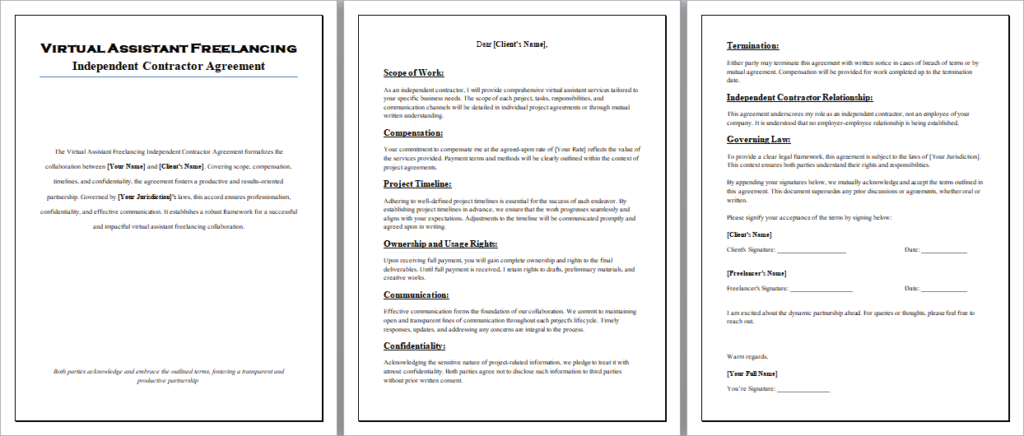

As a freelancer, having a contractor agreement is one of the smartest ways to protect yourself and your work. It’s easy for projects to get confusing if there aren’t clear rules in place—clients may expect more than you agreed to, or payments might get delayed. A written agreement helps prevent those headaches by laying out everything up front.
With a contract, you can be confident that your payment terms are clear, your scope of work is defined, and your rights over your work are protected.

Working without a written Independent Contractor Agreement can leave both freelancers and clients exposed to serious risks. Without clear terms in place, disagreements over payment, deadlines, or project scope are much harder to resolve—and often end in costly disputes.
For freelancers, the biggest danger is not getting paid on time (or at all), or losing ownership of your work without proper protection. For clients, the risks include missed deadlines, poor-quality work, or breaches of confidentiality with no clear way to hold the contractor accountable.
In short, skipping the contract can damage trust, waste money, and even lead to legal battles. A simple written agreement avoids these problems by making sure everyone is on the same page from the start.

An Independent Contractor Agreement is a written contract between a client and a freelancer or self-employed professional. It outlines the scope of work, payment terms, deadlines, and other important details to ensure both parties are protected.
Freelancers need a contractor agreement to avoid misunderstandings, secure timely payments, protect their intellectual property, and establish a professional, legally binding relationship with clients.
Yes, as long as it is properly drafted and signed by both parties, an Independent Contractor Agreement is legally binding and enforceable in most jurisdictions.
Key clauses typically include payment terms, confidentiality, ownership of work, deadlines, and termination conditions. These ensure clarity and minimize potential disputes.
Absolutely. Templates are designed to be flexible. You should always customize them to match your specific project details, industry requirements, and local laws.
← Previous Article
9+ Free Business Confidentiality Agreements You Can TrustNext Article →
12+ Joint Venture Templates for Growth and Success!